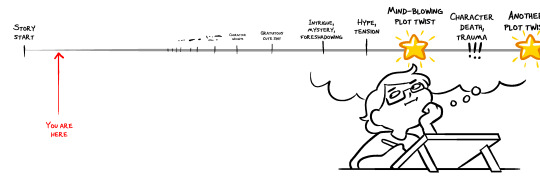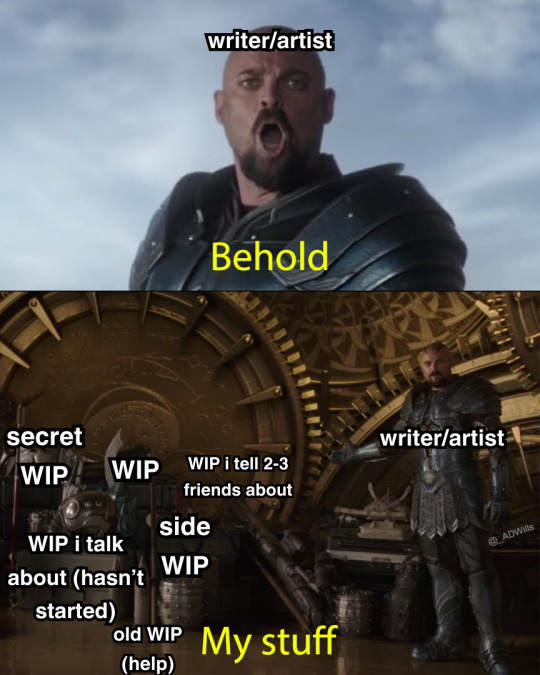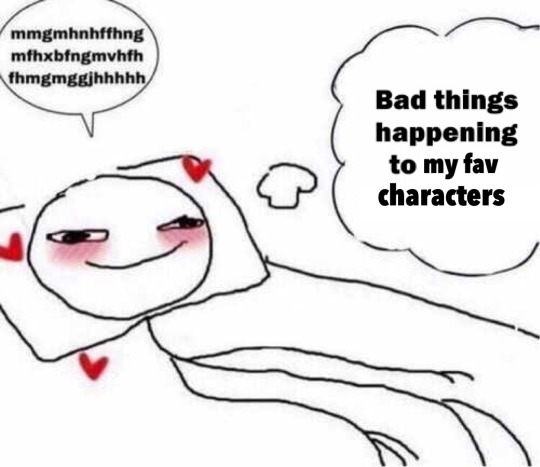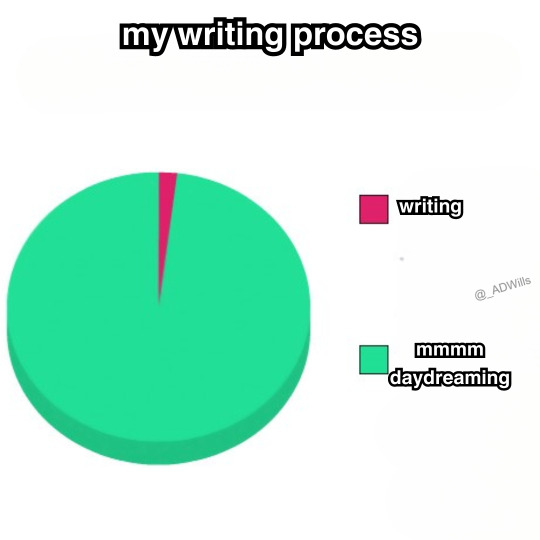Text
I know adverbs are controversial, but "said softly" means something different than "whispered" and this is the hill I will die on.
4K notes
·
View notes
Text
writing historical fiction will make you google things like “when we’re towels invented?” “how much did a towel cost in American in 1885?” “historical average number of towels owned per household”
8K notes
·
View notes
Text
happy international mother language day
“If you talk to a man in a language he understands, that goes to his head. If you talk to him in his language, it goes to his heart.” - Nelson Mandela
what's the first language of your OCs? what does it mean to them if someone speaks it to them?
#all of the Allastra six mains' first language is Allastran#a politically spread artificial lingua franca with a stronger grasp on some areas of the world than on others#that said Adalyce probably learned to talk in Kenayan and then Allastran for writing as Kenayan doesn't have a written form#and Darren and Elysa's family doesn't like Allastran hegemony too much so they're expected to speak their three official native languages#Selenian Urwyll and Kenayan#but the fact is that between them they speak Allastran#no one in Mesany speaks Mesanian anymore except scholars and priestesses
47 notes
·
View notes
Text
if you're cringing at the genre conventions of the genre you are writing in then why the hell are you writing in it. either have something substantial to say about those conventions or shut the hell up! i will not cringe alongside you at superhero powers and spaceship battles and big eldritch worms and bone magic. i came to this story to SEE that shit and I don't appreciate it when an author tries to pretend they're above the very things they're selling themselves on
985 notes
·
View notes
Text
That post that's like "stop writing characters who talk like they're trying to get a good grade in therapy" really blew the door wide open for me about how common it's become for a character's emotional intelligence to not be taken into consideration when writing conflict. I remember the first time I went to therapy I had such a hard time even identifying what I was feeling, let alone had the language to explain it to someone else. Of course there are plenty of people who've never been to therapy a day in their life who are in tune to their emotions. But even they would have some trouble expressing themselves sometimes. You have to take into account there are plenty of people who are uncomfortable expressing themselves and people who think they're not allowed to feel certain ways. It also makes for more interesting conflict to have characters with different levels of understanding.
89K notes
·
View notes
Text
I’m noticing an increase in new fic writers on AO3 who…uh…mayy not know how to format their fics correctly..so here is a quick and VERY important tip
Using a random fic of mine as example..

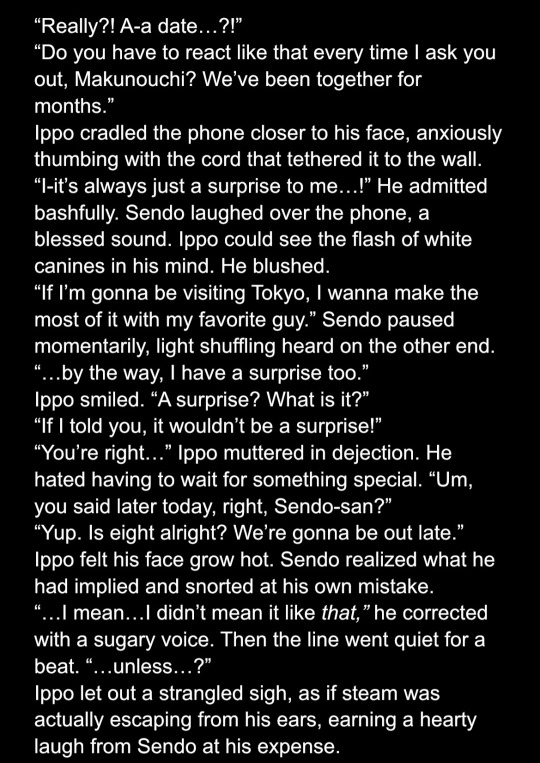
The left example: ✅✅✅
The right example: ❌❌❌
Idk how many times I’ve read a good fic summary and been so excited to read before clicking on it and being met with an ugly wall of text. When I see a huge text brick with zero full line breaks my eyes blur and I just siiiigh bc either I click out immediately or I grin and bear it…it’s insufferable!
If a new character speaks, you need a line break. If you notice a paragraph is becoming too large, go ahead and make a line break and/or maybe reconfigure the paragraph to flow better. I’m not a pro writer or even a huge fic writer but…please…ty…
15K notes
·
View notes
Text
"We'll fix it in post" is a phrase from the film industry, but it is inherently funnier when it's spoken by a writer because--tragic--you are also the post-production team.
5K notes
·
View notes
Text
Genuinely 90% of historical fiction would be so much better if more writers could get more comfortable with the fact that to create a good story set in a different time period you do actually have to give the characters beliefs & values which reflect that time period
32K notes
·
View notes
Text
me 250 words into a chapter: Gosh, how am I gonna make this at least 2500 words?
me at 6193 words on accident: Uh
2K notes
·
View notes
Text
Years and years ago, I read a book on cryptography that I picked up because it looked interesting--and it was!
But there was a side anecdote in there that stayed with me for more general purposes.
The author was describing a cryptography class that they had taken back in college where the professor was demonstrating the process of "reversibility", which is a principle that most codes depend on. Specifically, it should be easy to encode, and very hard to decode without the key--it is hard to reverse the process.
So he had an example code that he used for his class to demonstrate this, a variation on the Book Code, where the encoded text would be a series of phone numbers.
The key to the code was that phone books are sorted alphabetically, so you could encode the text easily--picking phone numbers from the appropriate alphabetical sections to use ahead of time would be easy. But since phone books were sorted alphabetically, not numerically, it would be nearly impossible to reverse the code without exhaustively searching the phone book for each string of numbers and seeing what name it was tied to.
Nowadays, defeating this would be child's play, given computerized databases, but back in the 80s and 90s, this would have been a good code... at least, until one of the students raised their hand and asked, "Why not just call the phone numbers and ask who lives there?"
The professor apparently was dumbfounded.
He had never considered that question. As a result, his cipher, which seemed to be nearly unbreakable to him, had such an obvious flaw, because he was the sort of person who could never coldcall someone to ask that sort of thing!
In the crypto book, the author went on to use this story as an example of why security systems should not be tested by the designer (because of course the security system is ready for everything they thought of, by definition), but for me, as a writer, it stuck with me for a different reason.
It's worth talking out your story plot with other people just to see if there's a "Why not just call the phone numbers?" obvious plot hole that you've missed, because of your singular perspective as a person. Especially if you're writing the sort of plot where you have people trying to outsmart each other.
40K notes
·
View notes
Text
so rude that fantasizing about writing alone is not enough to actually get the fic done. you have to actually sit down and write it. insane.
16K notes
·
View notes
Text
For reference mine was I was so mad at the canon ending for my favourite character in an otome game that I wrote fanfic to fix it
#my first written fanfic was my Harry Potter OCs transferred (and speciesbent) into the Warrior Cats universe#so... not sure where it goes
6K notes
·
View notes
Text
19 Most Common Character Flaws in Horror Fiction
Curiosity: Characters who are overly curious may investigate dangerous situations or places, leading to their downfall.
Arrogance: Arrogant characters may underestimate threats or refuse to heed warnings, putting themselves in danger.
Recklessness: Characters who act impulsively or without considering the consequences may find themselves in perilous situations.
Naivety: Naive characters may be easily deceived or manipulated by villains or supernatural forces.
Overconfidence: Overconfident characters may believe they can handle any situation, leading them to take unnecessary risks.
Stubbornness: Stubborn characters may refuse to listen to advice or change their course of action, even when it's clear they're in danger.
Greed: Greedy characters may prioritize personal gain over safety, leading them to make unethical or dangerous choices.
Distrust: Characters who are overly distrustful may alienate allies or miss crucial information, making them more vulnerable.
Cowardice: Cowardly characters may abandon others in dangerous situations or fail to confront threats when necessary.
Impulsiveness: Impulsive characters may act without thinking, leading to mistakes or putting themselves in harm's way.
Lack of Empathy: Characters who lack empathy may disregard the well-being of others, making them more susceptible to manipulation or isolation.
Overprotectiveness: Overprotective characters may prioritize the safety of loved ones to the detriment of their own safety or the safety of others.
Addiction: Characters who are addicted to substances or behaviors may make irrational decisions or be more easily controlled by external forces.
Obsession: Characters who are obsessed with a goal or idea may pursue it at any cost, even endangering themselves or others.
Paranoia: Paranoid characters may see threats where none exist, leading them to take extreme measures or isolate themselves unnecessarily.
Lack of Self-awareness: Characters who lack self-awareness may fail to recognize their own limitations or the impact of their actions on others.
Insecurity: Insecure characters may doubt their own abilities or judgment, making them more susceptible to manipulation or self-destructive behavior.
Ignorance: Characters who are ignorant of the true nature of the threats around them may underestimate their danger or fail to take necessary precautions.
Desperation: Characters who are desperate may make rash decisions or ally themselves with dangerous individuals or entities in hopes of achieving their goals.
1K notes
·
View notes

